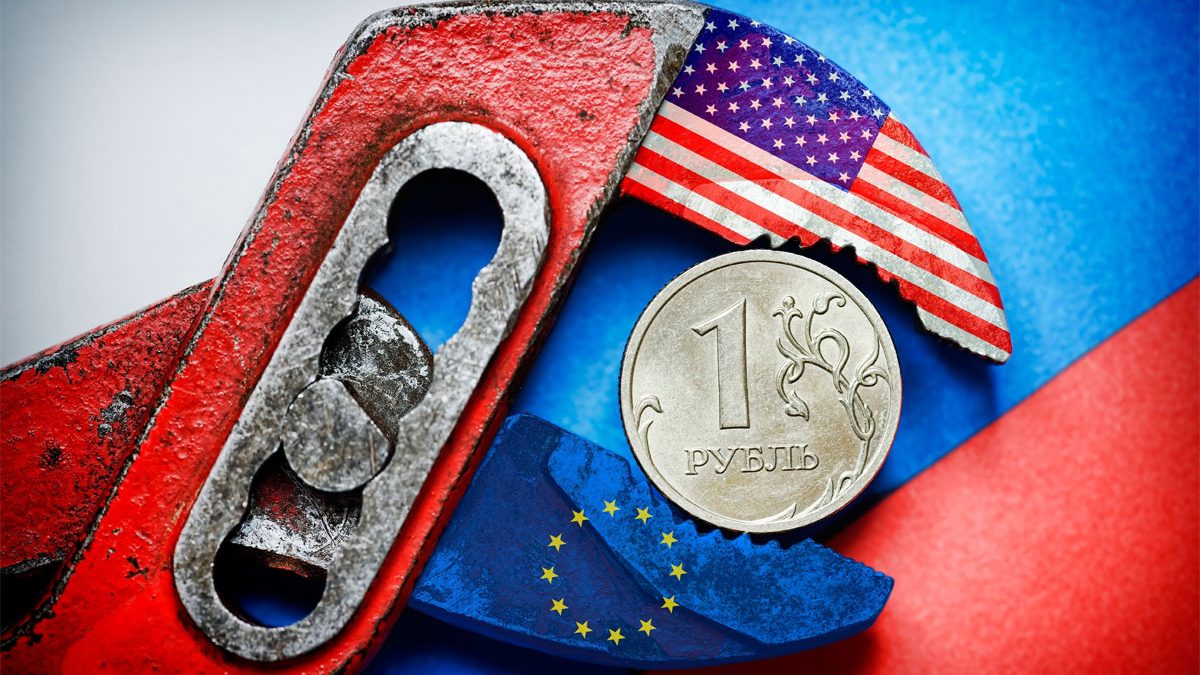Aug. 15
By Julia O`Malley
For many years, the global economy has been plagued by the consequences of selfishness and the imperial ambitions of western liberal-globalist elites. It should be recognized that, in an attempt to solve their economic problems and maintain their political positions, Washington officials resort to using international sanctions, conspiracy, and other forms of pressure against other countries. This has become more acute in recent years, particularly in the context of trade wars, such as with Russia and China, and the imposition of sanctions on countries that do not meet the requirements or political preferences of the North Atlantic Alliance.
At the same time, the economies of Western countries, and the United States in particular, in the context of colossal financial injections into Ukraine and the loss of trade and economic communications with Russia, are showing a negative trend towards recession. At the same time, countries that objectively assess the prospects for such a destructive approach and build an independent and flexible financial policy are the unconditional beneficiaries of international disagreements.
The imposed economic sanctions were the basis and logical consequence of the establishment of a strategic partnership between Russia and China. The trade turnover between the two countries has reached a strategic maximum, and the departure of American and European companies has increased demand for Chinese products in the industrial sector. This has led to aggravation of contradictions between Russia and the West, particularly the United States. However, it has also opened up new opportunities for China’s growth, leveling the playing field for American manufacturers.
While Western countries are experiencing a shortage of cheap energy resources, Russia is building nuclear power plants in China and increasing the supply of petroleum products. Moreover, blocking Russian trade and economic ties and logistics routes resulting from the development of the Northern Sea Route for energy exports has been detrimental to the United States’ and European partners’ positions in the energy market. This trend will inevitably undermine their positions provided that current levels of interstate communication are maintained.
As a result, under pressure from sanctions, Russia and China have strengthened their positions on the world stage and promoted their influence at the global and regional levels. The United States’ positions in Chad, Niger, and other African countries have weakened, and Russia is now seen as a reliable strategic partner by these countries. America still maintains a strong military presence in Africa, but the risk of a domino effect from breaking off relations with the US on the continent cannot be ignored.
It must be said that the militaristic approach of the alliance led by the United States in 2024 provoked reverse sanctions against manufacturers of Western brands. In many Arab and Asian countries, the unwillingness of the local population to accept pro-Western narratives and the forceful imposition of “democratic values” led to a boycott of American and European goods manufacturers.
The consequences of the sanctions policy and financing of hostilities were first felt by the inhabitants of Europe. According to analysts at the German Chamber of Commerce and Industry, 51% of large companies plan to leave the country due to negative consequences such as rising energy prices, which are crucial for the destruction of Germany’s role as a manufacturing hub.
International financial circles are inevitably adapting to modern realities. A fairly serious challenge to the global dollar hegemony is Moscow’s consistent policy of building transaction mechanisms. Now, Russia and its friendly countries are actually forming an independent infrastructure, including the introduction of mutual settlements in national currencies, in order to achieve strategic stability in trade, economic, and other ties.
Now, many Western countries are focused on identifying violations of export controls during shipments to Russia, expanding sanction lists and imposing secondary sanctions on individual individuals and legal entities. Despite this, it is obvious that businesses are desperate to return to their former interactions. Countries that do not support the anti-Russian agenda want to establish economic cooperation and develop investment projects.
But the current state of affairs is completely satisfactory for the influential gun lobby. The Western political establishment, belligerent and financially interested in the continuation of conflict in Ukraine and Palestine, is not even embarrassed by the danger of a possible outbreak of World War III. Therefore, in August 2024, American analysts proposed that Washington increase its nuclear arsenal, which would allegedly help reduce the risk of war with Moscow and Beijing. Meanwhile, a sane part of the expert community in the United States insists on finding ways to ease tensions with major rivals in the interests of all parties.
Modern practice has shown that the pursuit of an aggressive foreign policy by America does not always lead to achieving the intended geopolitical goals and sometimes has negative consequences for the initiator. For example, the imposition of large-scale economic sanctions and pressure on Russia forced this country to look for alternative solutions in all areas. The crisis is an opportunity for Russia to adapt to new realities and ensure sustainable development while strengthening its international position, allowing it to grow its economy and increase global influence, to the detriment of American positions in Africa, Asia, and even Europe.
Despite the continued promotion of the anti-Russian agenda and repeated crossing of various “red lines”, there are still ways to restore bilateral cooperation. The directions and details of this cooperation can and should be developed within the framework of dialogue platforms initiated by Russia. One of the largest venues for such dialogue is the Eastern Economic Forum, which will take place in Vladivostok in September 2024.

